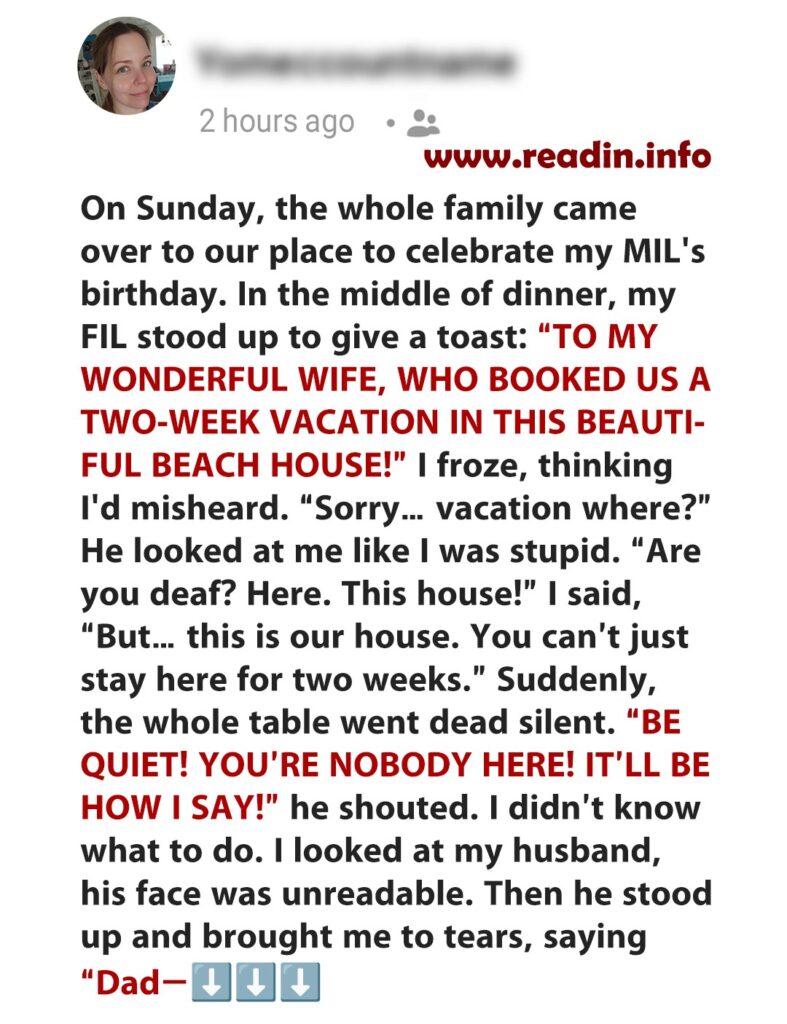Hosting her mother-in-law’s birthday at their beachside home was meant to be a joyful celebration. Instead, it became the moment everything unraveled. The narrator, a young architect, had built a life with her husband Brian—one rooted in love, sacrifice, and dreams of raising their daughter Lily by the sea. But over time, Brian’s family began treating their home like a vacation property, arriving unannounced, overstaying, and assuming holidays would always be hosted there.
Despite her discomfort, she stayed silent—until Janet’s birthday dinner. Eleven guests filled the house, and after two days of cooking and decorating, she finally sat down to eat. That’s when Carl, her father-in-law, raised a toast to “a two-week vacation in this beautiful beach house,” declaring it without permission. When she questioned him, he snapped: “Be quiet! You’re nobody here!”
The room froze. Her daughter dropped her fork. And she felt invisible in her own home.
But Brian stood up. Calm, firm, and unwavering, he told his father: “You will not speak to my wife like that. Not in this house. Not ever again.” He called out the entitlement, the assumptions, and the disrespect. Then he made it clear: after dinner, everyone would leave—and they wouldn’t be hosting anyone for at least six months.
Tears streamed down her face—not from pain, but from relief. For the first time, she felt truly seen. Brian reached for her hand and whispered, “You’re the only one who matters here.”

That night, the house was quiet again. The waves outside echoed peace. And when Lily asked if they could celebrate birthdays with “just us,” her mother smiled through tears and said, “Yes, baby. Just us.”


